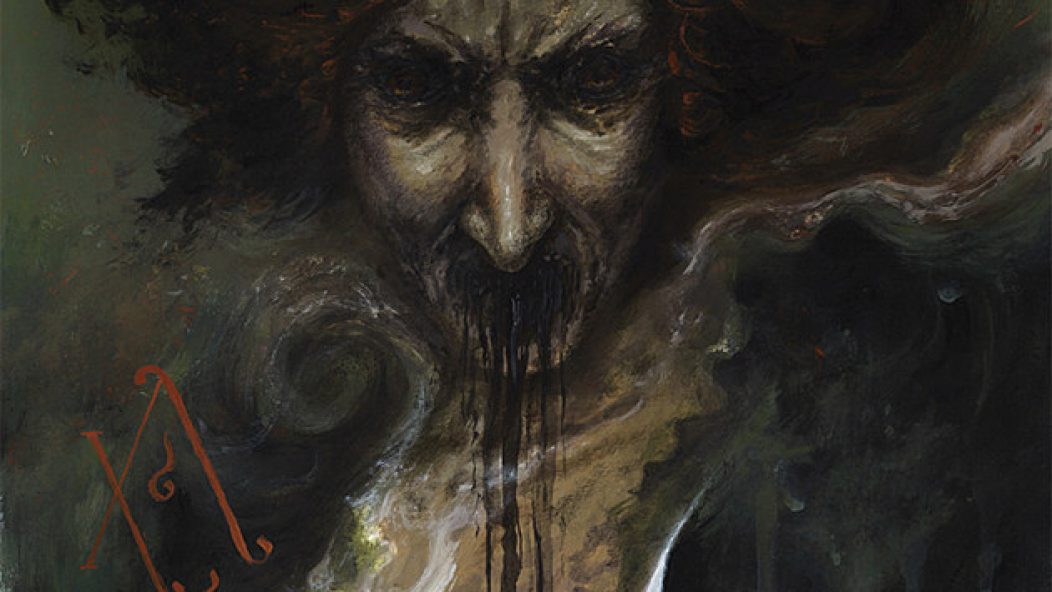
Top Albums of 2015, by Jon Rosenthal
…
2015 will go down as the Year of Big Changes for Jon Rosenthal: I finally got a job and moved out of my parents’ basement (25 isn’t too old, right?) and, after a few years of relative silence, I finally re-joined the world of music writing. I honestly thought it would take longer, at least for the former (I had made threats concerning writing about music again, but I found myself far too apathetic to actually do anything about it), but these past eight months have been an interesting ride. I’ve heard quite a few memorable albums, and countless hordes which should have never happened. Thus is life; as Sturgeon’s Law so eloquently puts it: “ninety percent of everything is crap,” and it’s true, most of the time people are so excited about putting an album out that the concept of proofreading and artistic digestion are thrown out the window. You can thank the internet for that. The ten percent leftover, however, is what we should all live for. The music which is so good, so memorable that it is impossible to ignore. You know, the music which has you tapping on your desk and humming melodies ad nauseum (much to the chagrin of my coworkers – sorry, Peter). We should all strive to create, or at least find and praise this music. You can read my attempts for this past year below. See you next year?
P.S. there are so many more artists I wish I could name in this list, but I guess I’ll just have to wait for more Spectral Voice, The Antichrist Imperium, and TRTRKMMR albums, huh?
…
Honorable Mentions:
20. Spectral Lore– Gnosis (I, Voidhanger Records, Greece)
19. The Clearing Path – Watershed Between Earth And Firmament/strong> (Avantgarde Music, Italy)
18. Kendrick Lamar– To Pimp A Butterfly (Top Dawg Entertainment/Aftermath Entertainment, USA)
17. Obsequiae – Aria of Vernal Tombs (20 Buck Spin, USA)
16. Panphage – Storm (Ætergap Productions, Sweden)
15. Circuit des Yeux – In Plain Speech (Thrill Jockey Records, USA)
14. VI – De Praestegiis Angelorum (Agonia Records, France)
13. Midnight Odyssey – Shards of Silver Fade (I, Voidhanger Records, Australia)
12. Noltem – Mannaz (Independent/Digital/Northern Silence Records, USA)
11. Mount Eerie – Sauna (P.W. Elverum & Sun, USA)
…

10. Caïna – Setter of Unseen Snares (Broken Limbs Recordings, UK)
I honestly forgot this album came out this year, and you can blame an early release date for that (can you remember back to January 20? I can’t – good thing I tried to, though). To preface: Caïna has been around a long time, longer than most of you would expect a “post-rock influenced black metal” band to exist. Dating back to 2004, Andrew Curtis-Brignell has been one of the driving forces in this now-widely popular style of music, but, judging by the band’s popularity, you wouldn’t really guess that. However, at least in my eyes, the listener is usually wrong and needs to do more research (note to readers: do more research). Eleven years and countless releases later, Caïna has released its strongest album to date (with Mourner being a close second [God dammit, Jon, respect Hands That Pluck! – Ed.]). Existing in a duality, Setter of Unseen Snares’s first half is an exercise in aggression, drawing upon Curtis-Brignell’s black metal upbringing, fused with muscular hardcore and disparate, spacey psychedelia (I have actually made previous comparisons to seminal powerviolence weirdos Gasp), but the B-side really cements SOUS as a top album. The near 18-minute “Orphan” is a moody, expansive masterpiece, the height which so many “post-black metal” bands strive for but ultimately fail.
…
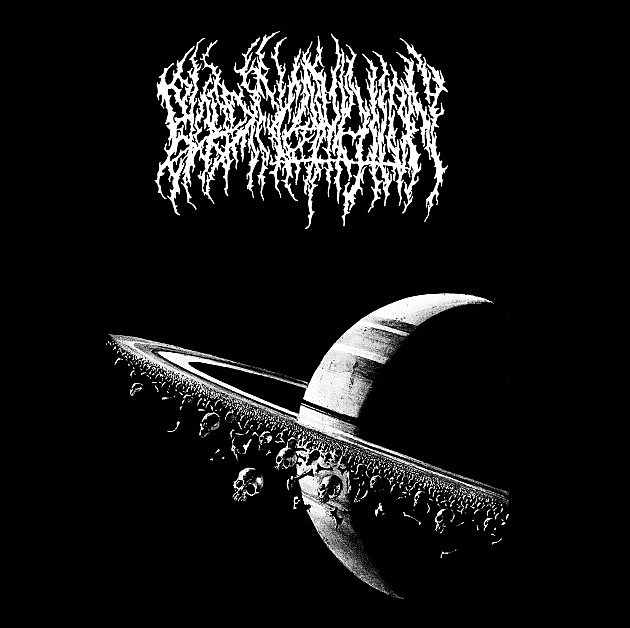
9. Blood Incantation – Interdimensional Extinction (Dark Descent Records, USA)
Holding the honor of “sole death metal album in my top 10″ (sorry, I’m picky) is Colorado-based Blood Incantation. I’ve been following Paul Riedl’s music career for the past ten years or so now, starting with Leech’s Ten Black Hymns demo, and he has made quite the transformation over the past decade. Though recorded in 2013, the tumultuous two-year wait for Blood Incantation’s debut studio recording, the excellent Interdimensional Extinction, was well worth it. Though only 18 minutes in length, Blood Incantation’s technical and melodic prowess hearkens back to an age when death metal was concerned equally with composition, technicality, and the brutality which permeates the genre. Guitarists Paul Riedl and Morris Kolontyrsky’s fluttering guitar work, paired with special guest Damon Good’s extremely effective fretless bass, is a reminder that brutality isn’t about slack-tuned, wet-sponge riffing. Effective musicianship, just like that of Kelly Shaffer, Trey Azagthoth, Chuck Schuldiner, and Antti Boman’s work in the 90s, can be just as filthy. Blood Incantation’s split with Riedl’s other band Spectral Voice deserves a mention here, as well, though I’ve only recently begun to digest it.
…

8. Terzij de Horde – Self (Burning World Records/ConSouling Sounds/Tartarus Records, Netherlands)
Eight years is a long wait to release a full-length album, but dutch black metal/hardcore hybridists Terzij de Horde effectively showcase the importance in sound development with their debut, Self. Steeped in early screamo’s chaos, Terzij de Horde’s Portraits of Past-meets-Deathspell Omega sound is an important step in the new wave of black metal-hardcore hybrids. The intricacies of Self go far beyond the band’s actual sound, with Terzij de Horde going as far as incorporating Self’s concept into the way the album itself was composed. Concentrating on the separation of one’s monist self into a mind-body dualism, we see Terzij de Horde carefully corralling harmony and discordance in a way which mirrors their thoughts thematically. Self in itself is poetic; Be it the lyrics, the performance, the overall passion, it is clear that Terzij de Horde will continue to be a force in music (but let’s hope it doesn’t take another eight years for an album).
…
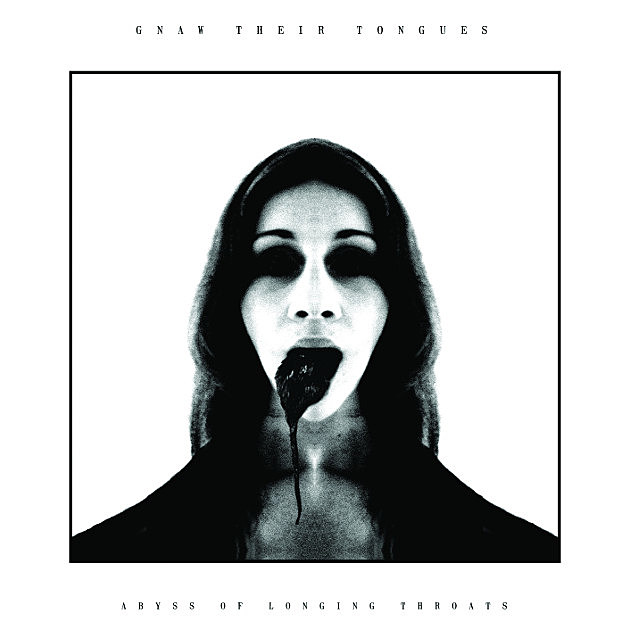
7. Gnaw Their Tongues – Abyss of Longing Throats (Crucial Blast Records, Netherlands)
Gnaw Their Tongues has always been a favorite of mine, but, at the same time, it can only really go one of two ways with Mories’s main project; you love it or you absolutely loathe it. I even saw that same split reaction in the crowd when I (finally) saw Gnaw Their Tongues while drunkenly slumped against our editor, Joseph, at California Deathfest. Gnaw Their Tongues is…unique, but to use the word “unique” is a bit of a short sell. Gnaw Their Tongues is Gnaw Their Tongues – an oppressive wall of disgusting, impenetrable, digital sound which is instantly recognizable and internalized. The manifestation of all that is ugly in this disgusting world – the leather-clad fetishization of death and mangled flesh made sound. With a newfound sense of clarity, Abyss of Longing Throats showcases a musical sense previously buried, or simply over-demonstrated, in Mories’s previous works under the Gnaw Their Tongues moniker. Though the “no wave” inspired sense of bludgeoning, mechanical impenetrability is still very apparent and practiced with abandon, the apokalypsis of Gnaw Their Tongues’s second form is devastating.
…
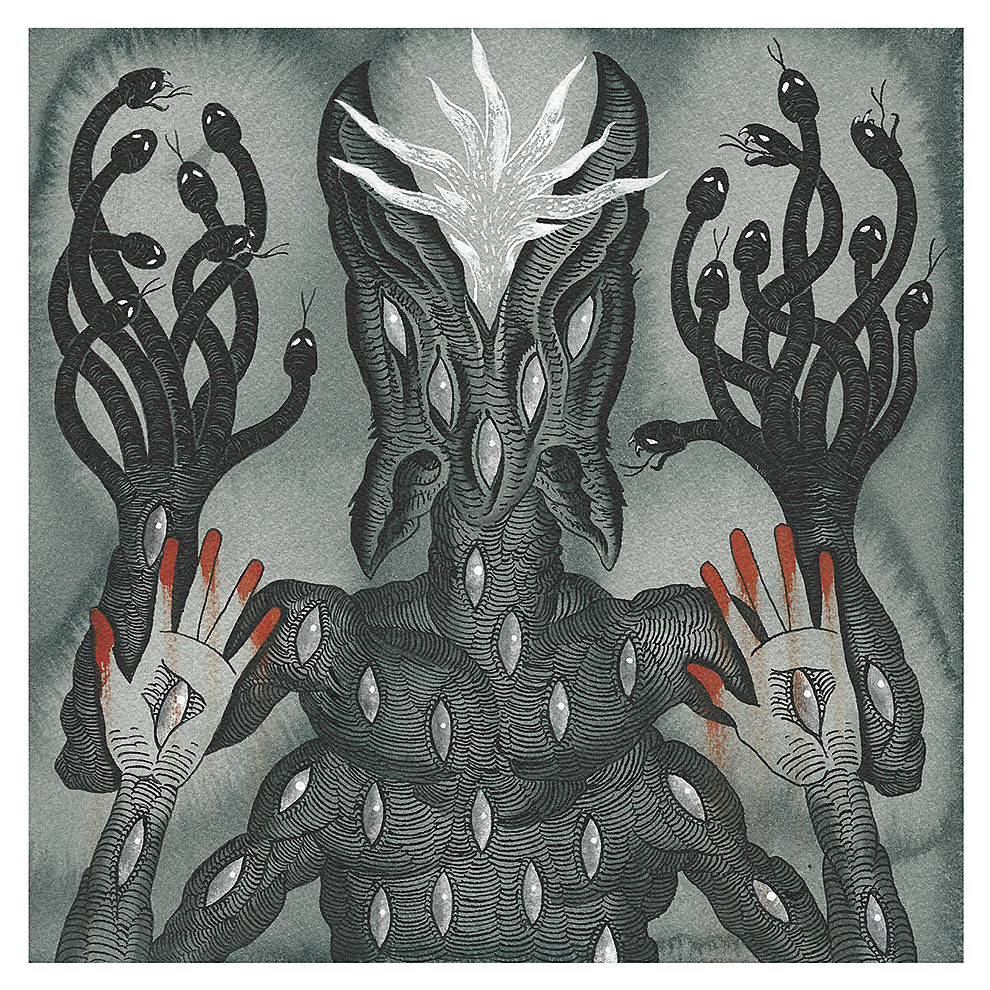
6. Leviathan – Scar Sighted (Profound Lore Records, USA)
I feel like Leviathan is going to end up on a lot of year end lists, which would generally lead to me raising my eyebrow and calling shenanigans, but Scar Sighted is definitely worth the unanimous praise. Whereas the preceding True Traitor, True Whore was born of reckless rage and bilious vitriol, Scar Sighted is a return to Wrest’s inward vision. Self hatred, seclusion, calculation. Though undeniably “heavier” than previous works, carrying a significantly death metal-inspired weight, Scar Sighted acts as a “rebirth” for Leviathan. The project was, after all, “suicidal” in its earliest days, not “murderous,” which was perhaps True Traitor, True Whore’s downfall. Though that album was good, Wrest is most effective when aggressive at himself as a synecdoche for the world, not another person as a symbol for himself. The woozy, angry “Leviathan metal” found on this latest album is Jef Whitehead at his most ghoulish, a reviled character born anew as a family man, carrying the weight of horrible accusations while attempting to retain a sense of humanity. The inconsistent, but still very effective, performance on Leviathan’s sixth full length further cements Jef Whitehead as one of black metal’s most important figures, pushing the genre’s most conservative aspects into the new millennium.
…

5. Pyramids– A Northern Meadow (Profound Lore Records/Black Horizons, USA)
Wow, what a transformation. From the slightly blackened, chaotic, shoegaze-inspired electronics of their self-titled album, the shimmering, almost sunshiney “metallic, discordant Deftones” sound of A Northern Meadow was a complete left-field move for the Pyramids collective. Joined by Blut Aus Nord’s Vindsval on percussion, Pyramids built this record from the bottom up, which is an odd, but ultimately effective approach. The amorphous percussive patterns and churning electronic base meet their foil with guitarist and musical wizard Colin Marston’s bizarre, harmonic guitar cirrus wisps. Through all the chaos of careful, subdued, Yorke-school vocalizations and the churning pyroclastics of constant, jarring, concordant harmony, there is a center which drives A Northern Meadow, and it is that momentum which ultimately leads to the band’s success as a distant collaboration between so many artists. Though hanging by a thread, Pyramids remains true, unique, and whole.
…
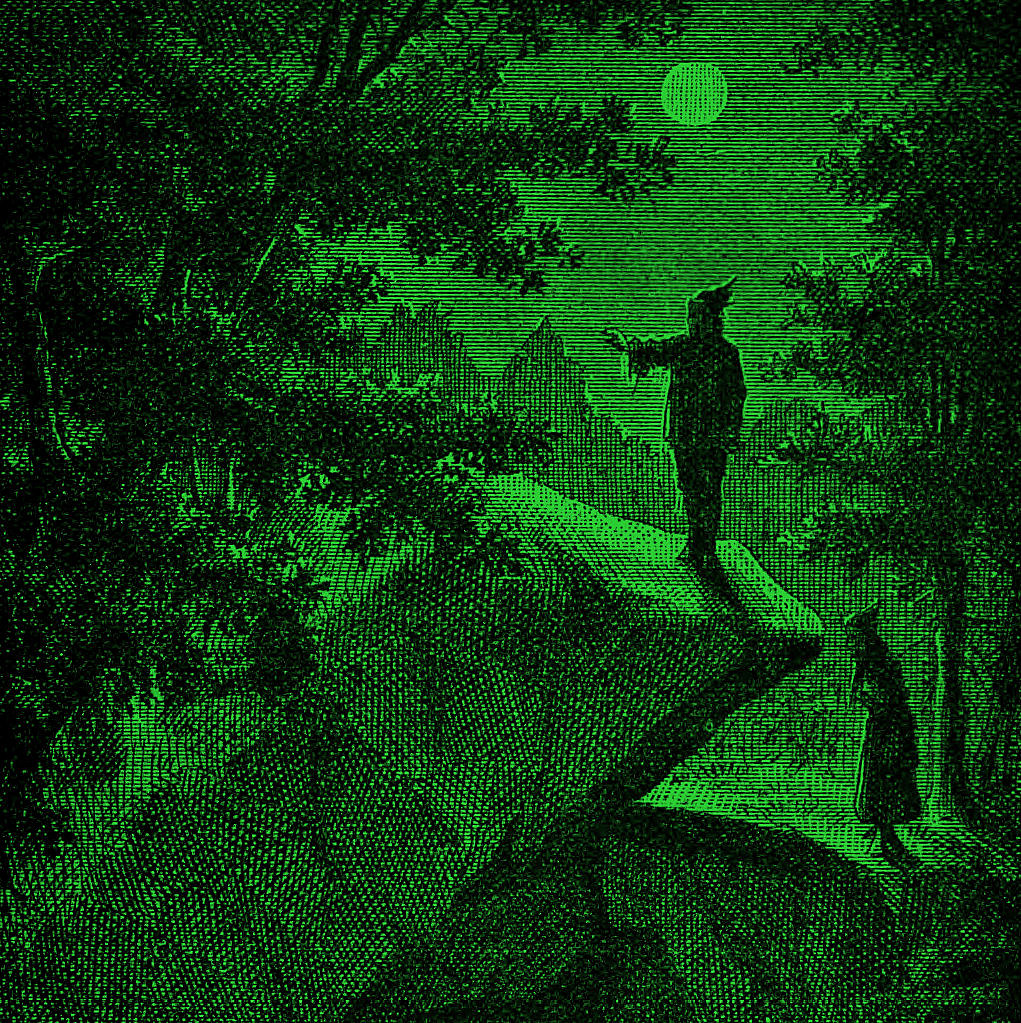
4. Erraunt – The Portent (Independent/Digital, USA)
I feel like there aren’t many “first demos” which find their way into year-end lists on sites like this. Sure, first demos tend to be clumsy, initial thoughts put to paper as a means of “manifesting” a band’s existence. Everyone has a first demo, hell, Immortal’s first demo didn’t hold a candle to Soulside Journey, but the existence of the demo is crucial in a band’s existence. The Portent’s quality puts Chicago-based one-man band Erraunt in a class all its own. The chiming, eerie, melodic black metal found in these three tracks (and a particularly memorable interlude) are sole member Oneiric’s singular vision, a demonstration of compositional prowess and a unique identity. Remember when bands wanted to be unique and have a sound all their own? It seems silly, especially when bands like Watain have built successful careers off of Jon Nödtveit’s riffs, but I digress; Erraunt is a band to watch, mark my words.
…
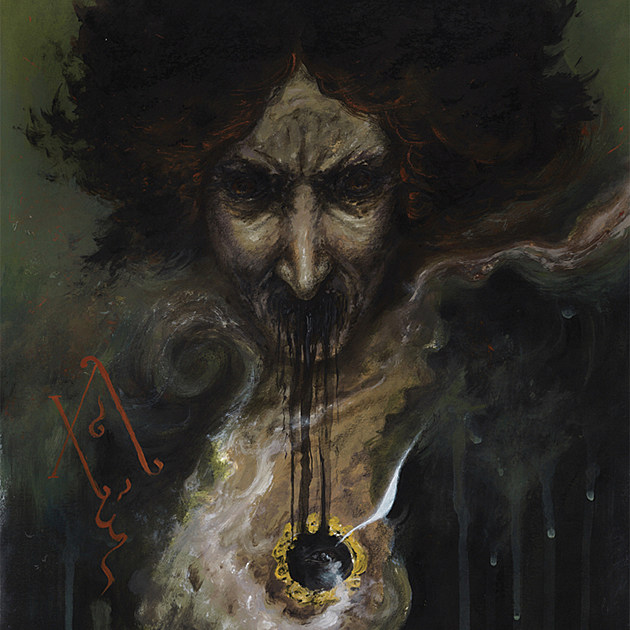
3. Akhlys – The Dreaming I (Debemur Morti Productions, USA)
I first got into Nightbringer shortly after the release of Death and the Black Work – the melodic, caustic, grandiose sound of Naas Alcameth’s unique approach to the guitar drew me in with a hook through my lip and I was hooked. However, it seemed as if Alcameth’s melodious sense had all but fizzled out after Apocalypse Sun, favoring the new wave of “standard dissonance” and Ephel Duath-style mathematics, but I yearned for those moments of bombastic clarity found on Nightbringer’s earlier works. Akhlys is that and so much more. The Dreaming I acts as the sequel to Apocalypse Sun that I never got. With The Dreaming I, Nas Alcameth’s sense of grandeur and bombast is at its most sumptuous and self indulgent, layering harmony upon harmony in an orchestral sense – each part acting independently from the other without becoming “busy” sounding or hectic. The brilliance of Akhlys’s carefully composed sound isn’t necessary in its technicality, of which Naas Alcameth has a strong grasp, but rather it’s lasting power. There are melodies strewn throughout The Dreaming I which become addictive, the kind you get stuck in your head and just have to hear, regardless of your current setting. When you think about it, most black metal doesn’t have much staying power, maybe remaining infectious for a few weeks before ultimately being removed from your phone/iPod/computer/record queue, but The Dreaming I has remained a constant since its release almost eight months ago. How could I deny such a masterpiece?
…
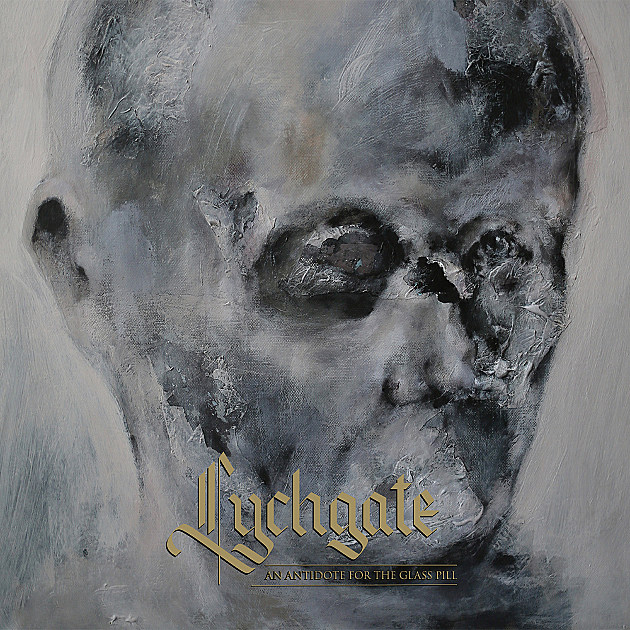
2. Lychgate – An Antidote for the Glass Pill (Blood Music, UK)
To refer to an extreme metal album as “truly creative” or “pushing boundaries” is always a little canned. I mean, in the end most bands take the standard formula and add a slight variation, be it the album cover, a change in tonality, a theme, or something equally mild – suddenly they’re heralded as “saviors of metal.” It seems lazy, people refusing to move out of their comfort zone and instead focusing on minutia to justify movement. Defining Lychgate as different isn’t doing them justice. Lychgate is the challenge that extreme metal has needed to avoid the inevitable stagnation which plagues any standardized genre. Primary songwriter Vortigern’s obviously learned hand offers a distinctly “modern” spin on progressive music, Modern of course referring to the modern/avant-garde movement of the mid-20th century, with a technical and compositional prowess which is, as far as I’m concerned, unmatched in metal.An Antidote for the Glass Pill flows like a Messaien organ suite: an oppressive, pyroclastic dissonance, equally oppressive and compelling, which leaves a permanent mark on the listener. Lychgate’s sophomore effort is the result of careful planning and thought, study and practice, which ultimately paid off.
…

1. Low – Ones and Sixes (Sub Pop Records, USA)
Putting Low’s Ones and Sixes as my favorite album of 2015 is kind of a cop out, especially if you’ve followed my listening habits over the last 10 years. The masters of “slowcore” reclaim their throne with their slowest, most deliberate album in years. Not to say recent efforts have been bad, as their works since 2005’s The Great Destroyer definitely hold merit, but Ones and Sixes is the beginning of a return to the minimal power found on I Could Live In Hope and Long Division. Low’s slow, minimal, textured approach to indie rock strikes me in a special way which leaves me filled with yearning. I guess I didn’t feel that special, personal unfulfillment with their latest albums (outside of a few, special moments), which makes the despondency of Ones and Sixes all the more special. Frontman Alan Sparhawk seems to have stepped back from the indulgent, Neil Young-inspired psychedelia which permeates Low’s last decade and remembered the power of emptiness, the space between which makes each subsequent note all the more devastating. As this is a metal website, Sparhawk’s own citing of seminal doom overlords Burning Witch as an influence finally manifests itself on this particular album, with Low at their absolute heaviest. I’ll leave you to discover this album (and the rest of their discography as I did so many years ago).
…










